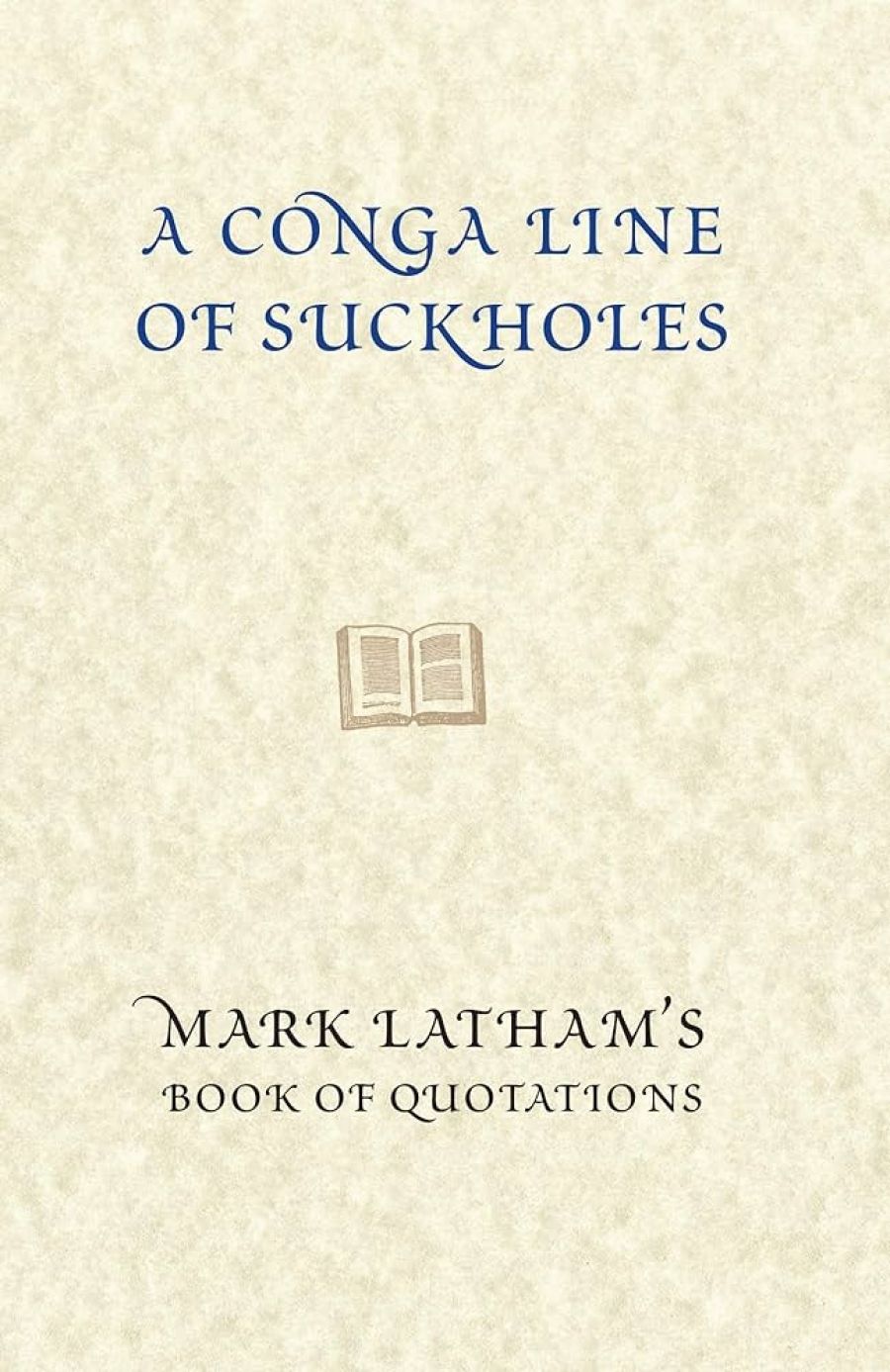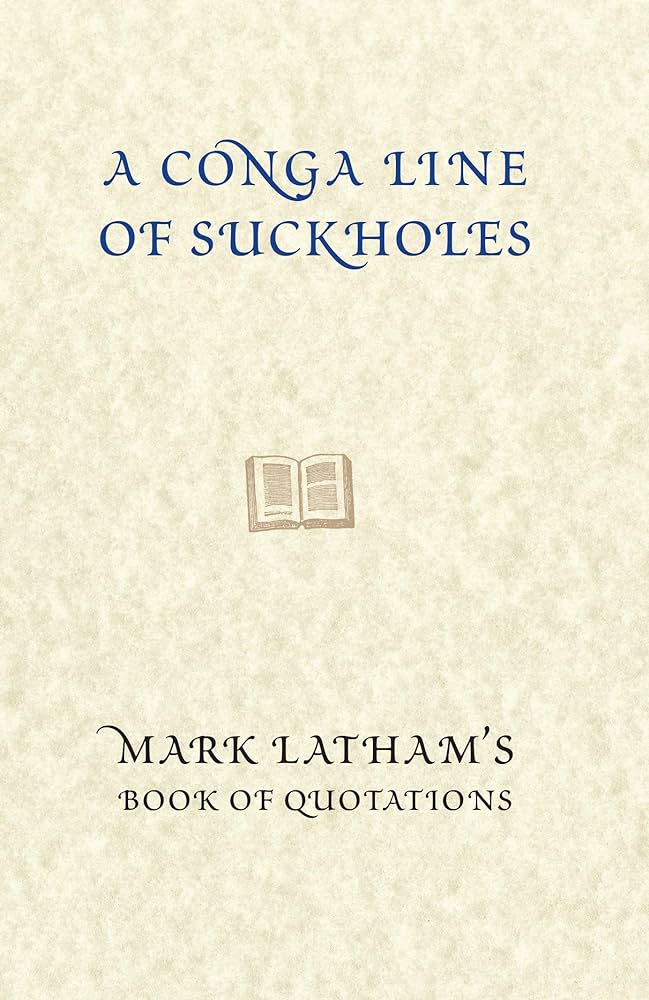
- Free Article: No
- Contents Category: Language
- Review Article: Yes
- Article Title: ‘Young ambition’s ladder’
- Online Only: No
- Custom Highlight Text:
This is a selection of the quotations Mark Latham collected during his time in local and federal politics. The quotations are arranged alphabetically by subject, from ‘Aboriginal People’ to ‘Working Class’. Given Latham’s career, it is not surprising that the emphasis is on political quotations and quotations from politicians.
Some quotations are quite familiar, as with Winston Churchill’s comment on a former Conservative MP who was seeking to stand as a liberal: ‘The only instance of a rat swimming towards a sinking ship.’ I was touched by Archbishop Desmond Tutu’s incisive critique of colonising missionaries: ‘When the missionaries first came to Africa they had the Bible and we had the land. They said “Let us pray” and when we opened our eyes, we had the Bible and they had the land.’ Charles de Gaulle demonstrates Gallic culinary wit: ‘How can you govern a country which has 246 varieties of cheese?’ Readers will find their own favourites.
- Book 1 Title: A Conga Line of Suckholes
- Book 1 Subtitle: Mark Latham’s book of quotations
- Book 1 Biblio: MUP, $24.95 hb, 246 pp
- Book 1 Cover Small (400 x 600):

- Book 1 Cover (800 x 1200):

But there are three things that set this book apart from similar florilegia. First, it is framed by an argument about the emasculation of Australian blokes and Australian English. Secondly, it emphasises the literary productivity of its author in relation to other federal politicians: ‘Among the 1490 people who have served in the Australian Parliament, the South Australian geographer and historian A. Grenfell Price has written the greatest number of books (nineteen). I am ranked ninth on the … list.’ On this literary ladder, Latham is two books behind Barry Jones, and one book ahead of Alfred Deakin, Billy Hughes, Jack Lang, Robert Menzies, and Gough Whitlam. Heady company indeed! Thirdly, the quotations from generally famous people are interfoliated with the wit and wisdom of Mark Latham, taken mainly from his Diaries (2005).
In the introduction, Latham argues that there has been a ‘decline in Australian male culture – the loss of our larrikin language and values’. The decline is blamed on such things as ‘the rise of Left-feminism in the 1970s and 1980s’. Australian males have been reduced to literal and figurative wankers: ‘Australian mates and good blokes have been replaced by nervous wrecks, metrosexual knobs and toss-bags … It’s the revenge of the nerds, John Howard-style.’ Latham refers to a Christian commentator who deplored his expression ‘a conga line of suckholes’, and warns this commentator not to read his larrikin-inspired book, now titled A Conga Line of Suckholes: ‘It has too many ridgy-didge Australian expressions for this politically correct petal to absorb.’ Disappointingly for this argument, there is not much Australian language in the book (in the quotations above the language is entirely international or American; the dig at ‘nerds’ is a bit offkey, since in the 1984 teenage cult film The Revenge of the Nerds, the ‘nerds’ are a multicultural and sexually diverse group who exact appropriate vengeance on a pack of élitist university jocks). One quoted passage provides the two Australianisms ‘ratbag’ and ‘chuck a brown eye’, but elsewhere the pickings are slimmer. I noted ‘rort’, ‘mateship’, ‘clacker’, and ‘mad as a cut snake’, but that is the extent of the ‘ridgy-didge Australian expressions’.
The book’s title derives from Latham’s attack on John Howard’s relationship with George W. Bush. Latham quotes the 2002 passage where he described John Howard as an ‘arselicker’. The conga line expression occurred in a speech in parliament in 2003: ‘Mr Howard and his Government are just yes-men to the United States. There they are, a conga line of suckholes on the conservative side of Australian politics’. ‘Suckhole’ is possibly another Australian term, first appearing in Donald Friend’s Gunner’s Diary in 1943, although it has recently been revealed that it is also used in Canadian English.
The language Latham uses is not really that of the Australian larrikin. What we find is a semantic cluster of arses and genitals – ‘knob’, ‘toss-bag’, ‘suck hole’, ‘arselicker’, ‘clacker’, ‘chuck a brown eye’ – that is more the domain of the Australian ocker and the American jock than the Australian larrikin. And for all of Latham’s anti-Americanism (especially evident in the section ‘United States’), the extraordinary thing about this book is the extent to which American politicians are quoted with obsessive interest and even approval. Winston Churchill is quoted twenty-two times, but Richard Nixon is quoted thirty-six times. The only person who comes close to Nixon is Latham himself, who is quoted thirty-two times. The next two most quoted are Lyndon Baines Johnson (nineteen quotations) and John F. Kennedy (sixteen). Latham seems quite content to take his place in the conga line of American presidents.
From the time he was elected leader of the opposition in December 2003, Latham addressed the aspirational voters with his ‘ladder of opportunity’ metaphor. There are no ladders of opportunity in this present book (which uses, instead, the conga line as its metaphor of articulation), but I was utterly baffled about how to respond when I came to Latham quoting Brutus’s allegorical ladder in Julius Caesar:
But ’tis a common proof,
That lowliness is young ambition’s ladder,
Whereto the climber-upward turns his face;
But when he once attains the upmost round,
He then unto the ladder turns his back,
Looks in the clouds, scorning the base degrees
By which he did ascend.
I am sure that this is meant to be ironic, but no doubt most readers will feel, with me, a frisson of uncertainty. Et tu?


Comments powered by CComment